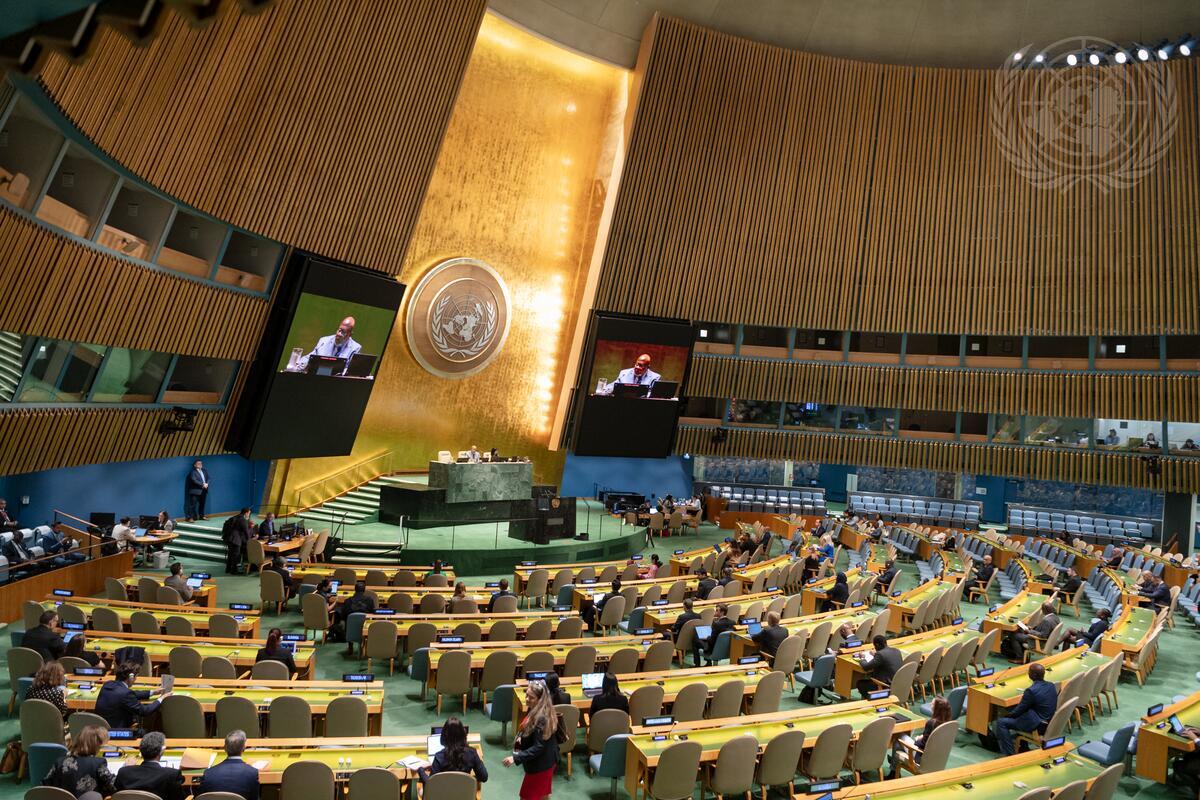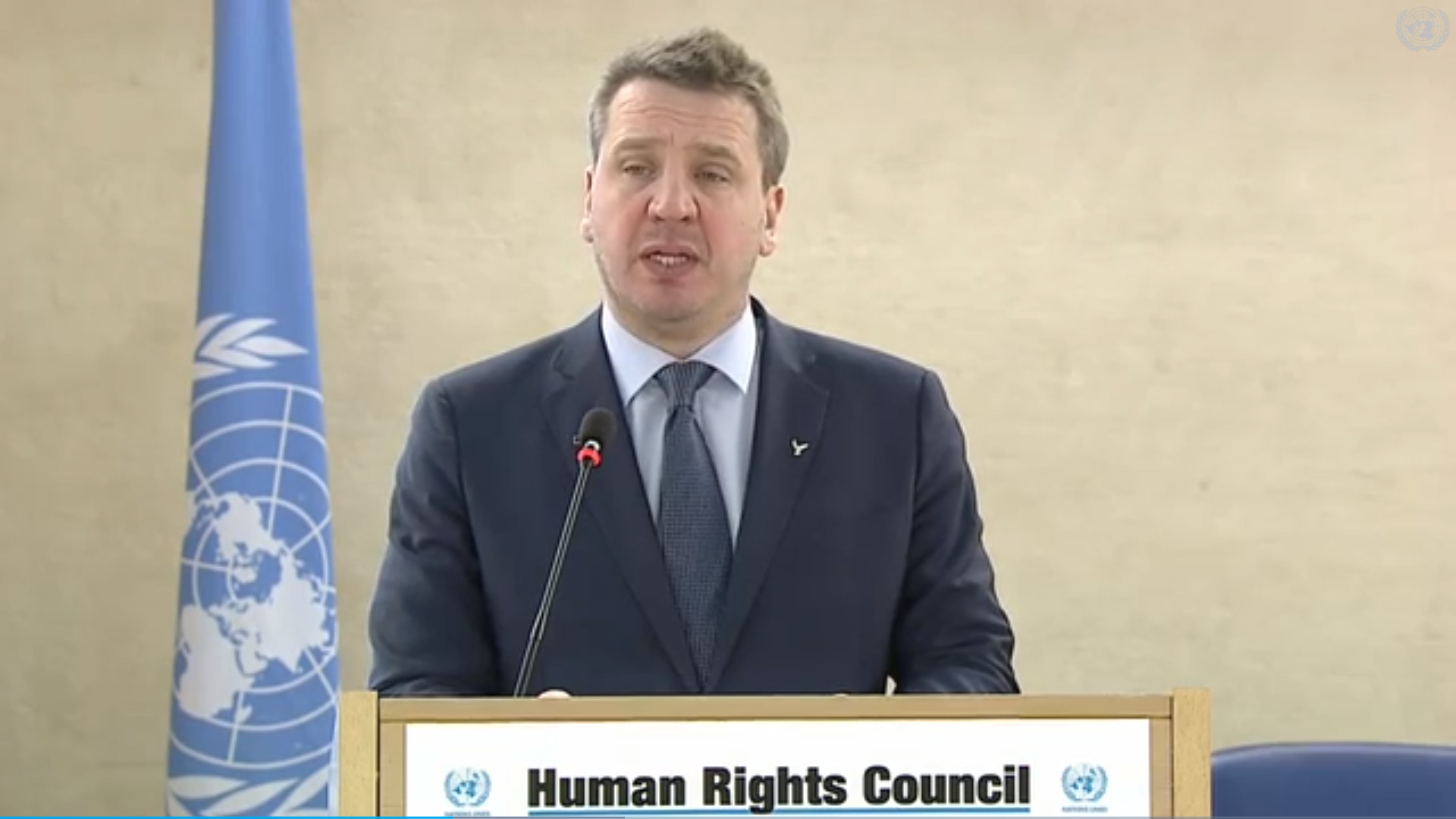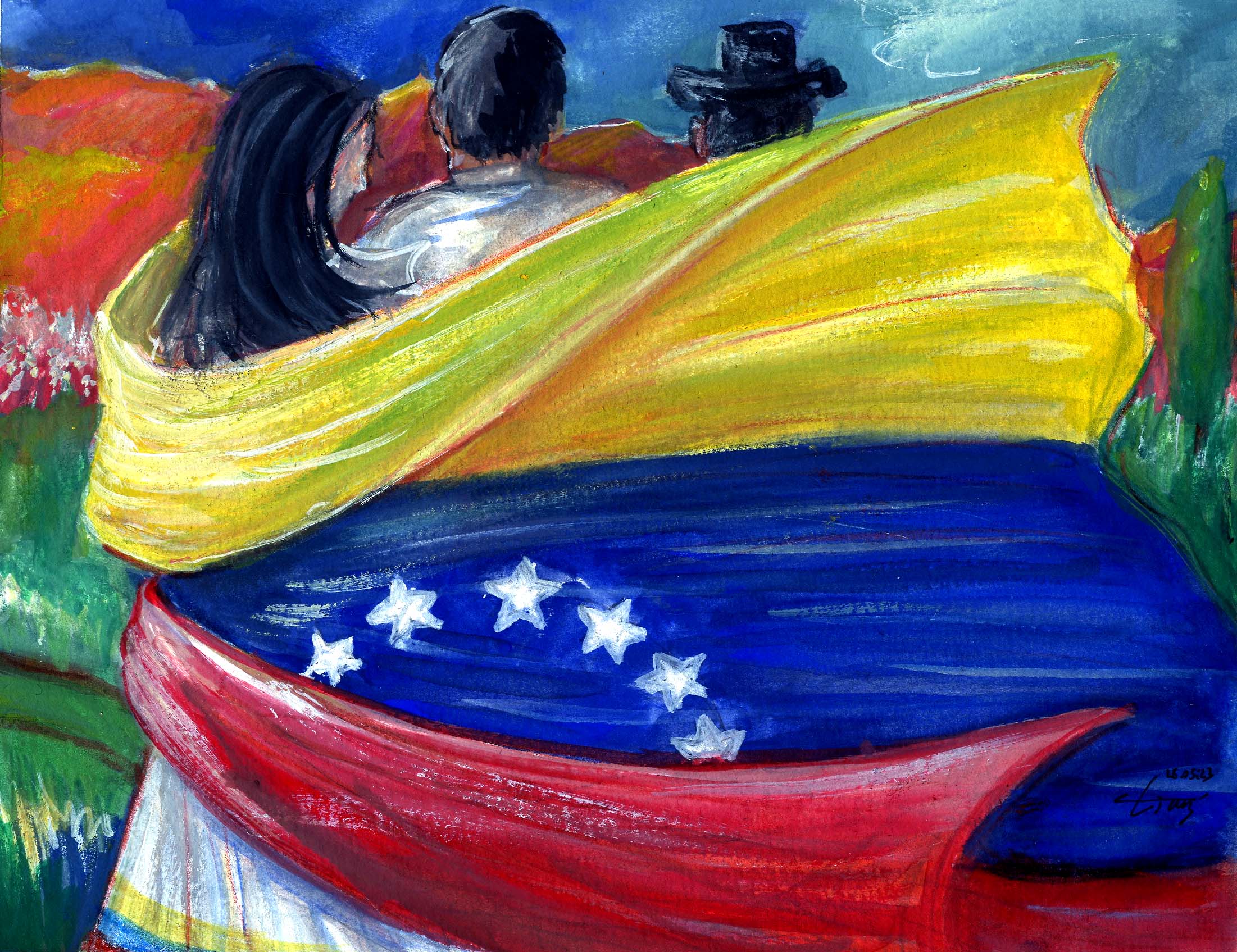This year, as we celebrate the seventieth anniversary of the Universal Declaration of Human Rights, it is appropriate to go back to basics.
Article 1 pretty much says it all: “All human beings are born free and equal in dignity and rights.”
How can anyone object to the thought and meaning inherent in these words?
Article 2 also states very clearly that “everyone is entitled to all the rights and freedoms set forth in this Declaration”.
Article 3 is short and to the point: “Everyone has the right to life, liberty and security of person.”
I am reciting some articles of this fundamental document because many of the issues facing this body, the Human Rights Council, would unfortunately suggest that not every member state of the United Nations is shouldering its responsibility – to fully respect the rights of all human beings under the Universal Declaration of Human Rights.
Governments were not coerced by the UN or anyone else into creating the Universal Declaration of Human Rights. It was created because it seemed imperative, after the horrors of the Second World War, to create a better world where everyone would have full and equal human rights.
So why does not everyone live up to the ideals of the Universal Declaration of Human Rights and why are we living in a period when, according to the High Commissioner, there is an increasing tendency to try and negate and deny the value of human rights?
I take this opportunity to recognise and applaud the work of the High Commissioner who has shown courage in speaking out about negative trends in the field of global human rights. And while I am an optimist by nature, one has to agree with the High Commissioner that we are falling short on too many fronts.
But what can be done when States violate the commitments they have taken upon themselves to respect and who is to hold them accountable? Can we not agree that it is primarily us – other States that have taken upon ourselves to accept these obligations? We should not point towards the UN as some body unrelated to the States that make up its membership. We must hold each other to account.
Last year, Iceland took the lead in this body in highlighting the human rights situation in the Philippines and were joined in our statements by close to 40 States.
We shared our concerns over the methods, used by the Government of the Philippines, in their “war on drugs”, and we urged the Government to take all necessary measures to bring unlawful killings to an end, and to cooperate with the international community to pursue appropriate investigations in keeping with universal principles of democratic accountability and the rule of law.
We welcome reports that the Philippines have indicated that they may be willing to cooperate with the UN to allow an objective assessment of the human rights situation in the country. We would like to take this opportunity to urge the Philippines to continue on that path and to accept, without preconditions or limitations, a visit from the UN Special Rapporteur and to cooperate with the Office of the High Commissioner to receive a mission by independent experts to conduct such an assessment without delay.
The International Criminal Court announced earlier this month that it will conduct a preliminary examination into killings linked to the Philippine government’s “war on drugs.”
This is an important development – but it does not take the responsibility away from this body to fulfill its duty to monitor, investigate and to deliberate, and take further steps, including a more formal Council initiative if the need arises, to try and ensure the Philippines meets its human rights obligations.
It should be noted, that the Philippines is currently an elected member of the Human Rights Council.
So too is the Kingdom of Saudi Arabia, recently accused of widespread and arbitrary arrests through its use of counter-terrorism and security laws, and the persecution of human rights defenders for peacefully exercising their fundamental rights.
So too is Venezuela, a country which has in recent months and years witnessed excessive use of force by security officers, and multiple other human rights violations, in the context of anti-Government protests.
Egypt is also a member of the Council and yet the High Commissioner has recently informed us of reports of oppressive measures by the Government, including increasing waves of arrests, allegations of torture in detention, extra-judicial killings and restrictions on human rights defenders.
States which join the Council should lead by example and expect their own human rights record to be subject to particular scrutiny during their time as members. If the Human Rights Council does not hold its own members to account to ensure they uphold the highest standards in the promotion and protection of human rights, then who will?
…
Read the full speech delivered at the high-level segment at the 37th session of the Human Rights Council on 26 February 2018 here.
Photo: UN web TV




